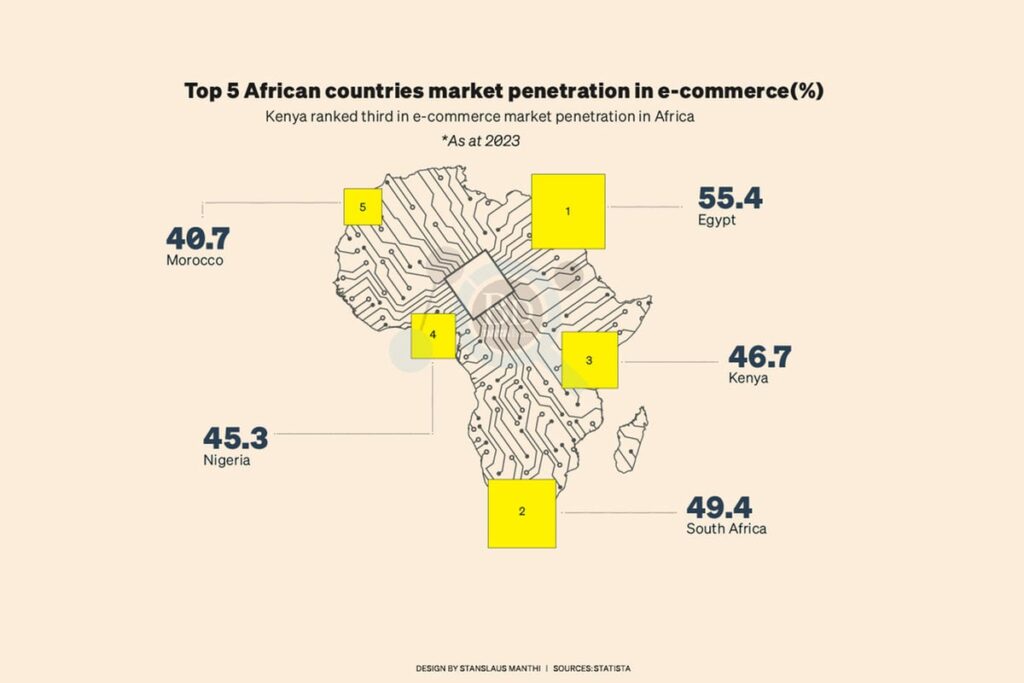Internet penetration has made Kenya the third largest e-commerce market in Africa, making it an attractive market for investors.
Statista, a German data and business intelligence platform, ranked Kenya third with an e-commerce market penetration rate of 46.7% on the continent. This is behind Egypt and South Africa (49.4 percent), which topped the list with an e-commerce penetration rate of 55.4 percent. This is an improvement from her fourth fastest growing e-commerce economy in sub-Saharan Africa, based on his 2020 analysis of the United Nations Conference on Trade and Development.
However, Kenya's improved ranking comes at a time when e-commerce companies continue to incur heavy losses, forcing some companies out of the market. For example, Jumia, which had accumulated losses of $87.8 million (Sh11.5 billion) by the end of 2021, recently closed its food delivery operations in Kenya along with seven other African countries.
Other players such as SkyGarden and OLX faced several challenges in the market, forcing them to shut down or look for buyers.
Statista revealed that in 2020, e-commerce in Kenya accounted for 76.1% of digital revenue, worth an estimated $1.1 billion. The growth of e-commerce has been facilitated by the introduction of a digital economy blueprint targeting the ICT sector and e-commerce activities.
Additionally, the proportion of Kenyans aged 15 and above who have mobile money (68.7 percent) or a bank account (50.6 percent) is increasing year on year.

Design | Stanrus Manti | Edited by John Wawel | Source: Kepios, Statista
In particular, the number of individuals using the Internet has tripled in ten years, from 7.48 million users in 2014 to 22.7 million users in January 2024.
As a result, mobile money systems developed such as M-Pesa have high uptake, allowing more Kenyans to transact online.
According to a recent report from Kepios, e-commerce revenue primarily comes from electronics ($366 million), fashion ($280.3 million), toys and hobbies ($45.5 million), and furniture ($32.2 million). ) is obtained from.
The report also showed the percentage of Internet users in Kenya engaged in e-commerce activities. It found that 37.6% of Kenyans buy products online, followed by those who use online price comparison services (15.7%).
However, several challenges are hampering the growth of e-commerce in Kenya, including the regulatory framework following the introduction of the Digital Services Tax in 2020.
The lack of adequate fraud detection and prevention mechanisms in many African countries makes it difficult to create and build trust in the continent's markets, leading to delays in the adoption of e-commerce. I am.
Therefore, to attract more businesses to e-commerce, we need to reduce the cost of technology, strengthen cybersecurity, make the regulatory environment more favorable, and improve logistics.


